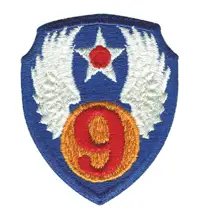ALG A-18 – Saint-Jean-de-Daye
Battle of Normandy
This page presents the history of ALG (Advanced Landing Groud) A-18, used by the 9th United States Air Force during the Battle of Normandy.

9th United States Air Force
Location: Saint-Jean-de-Daye, Manche (50)
Code: A-18
Coordinates: 49°13’03 »N – 01°09’37 »W
Construction: from July 31 to August 29, 1944 by the 852nd Engineer Aviation Battalion (EAB)
Operational period: from August 29 to September 5, 1944
Airstrip: Prefabricated Bituminous Surfacing (PBS) extended by Square-Mesh Track (SMT)
PBS airstrip:
Length: 1 097,28 m (3 600 feet)
Width: 36,57 m (120 feet)
Azimuth: 62°
SMT airstrip:
Length: 426,72 m (1 400 feet)
Width: 36,57 m (120 feet)
Azimuth: 62°
Units:
– 366th Fighter Group (389th Fighter Squadron, 390th Fighter Squadron, 391th squadron)
ALG A-18 history:
ALG A-18 is located between the localities of Mesnil-Véneron and Saint-Jean-de-Daye in the north and Le Dézert in the south. Built late, it does not play a particular role during the Battle of Normandy but is still used for allied supply.
Sappers build a 3,600-foot long PBS runway (Prefabricated Bituminous Surfacing). PBS, also known as « Hessian Mat »: it is a solid coating consisting of layers of bitumen and Hessian fabric which is particularly meticulous and requires the use of special machines. It avoids the negative effects of mud and dust.
A total of 426.72 meters (1400 feet) of SMT is added to provide a 1,524-meter (5,000 feet) total runway for heavily loaded ammunition and explosive devices.
It is returned to the French government only seven days after its official opening.
